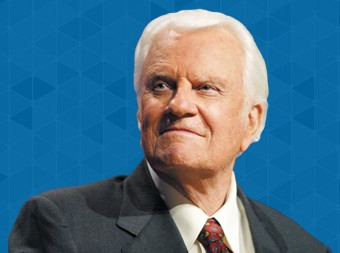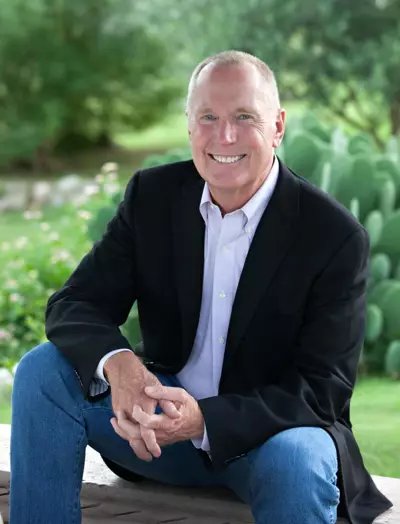Posted by Temmy
Thu, March 25, 2021 2:37pm
The psychology of ‘deconstruction'
by William B. Bowes
One of the values that is prized in our culture, particularly among younger adults, is authenticity. There is an exaltation of (and an exultation in) the authentic. We all have seen the many "coming-out" or "transitioning" stories that describe an experience of liberation coming from an embrace of one's "authentic self". These sorts of stories come in various forms, but an astute observer will note that there is great cultural acclamation and praise for those who leave behind an old identity to embrace a new, alternative, "authentic" one. It is seen as the height of individualism and personal liberty to leave behind what one was taught or how one was raised, with all of the forms and traditions accompanying these, for the new frontier of a new identity or self-expression. The shucking off of the expected or established path is celebrated; there is no prize or commendation for adhering to or maintaining beliefs that represent an "old way" of doing things. In short, almost irrespective of the type of transformation or the nature of the beliefs that come or go with it, our society loves a story of personal liberation.
A unique place where we see this pattern is the stories of "deconstruction" from those who have long identified as Christian or have been raised in a Christian environment. If you are like me, you have heard many stories from friends, family or by celebrities about this process of taking apart, or deconstructing, what they once believed. The deconstruction narrative generally begins with a period of simply accepting what one was taught, whether as an effect of borrowing from the family's faith or of being immersed a Christian culture with little interaction with those leading different lives or believing entirely different things. Then, over time, removal from those environments can lead to the inevitable question, "do I even truly believe these things?" This self-examination may be brought about by relationships with non-Christians who are kind, genuine people who live normal lives, but have an entirely different perspective. It may be brought about by having to face a personal or spiritual crisis for which one was woefully unprepared. Whatever the harbinger, it leads to a crisis, where one's assumptions and presuppositions are taken apart like bricks from a proverbial wall of one's constructed reality or worldview. The foundation underlying this wall is never as strong as the person hoped, and eventually it comes down. Inasmuch as it results in a vulnerable and authentic quest for personal fulfillment, this sort of exodus from Christianity is often met with praise.
For those of us who have heard many of these stories, there is a sense that this comes out of the blue; we feel shocked that someone we knew or were influenced by rejected their faith. However, it is never that simple. Deconstruction is always a long process, and sometimes it leads to a revelation that someone is not necessarily rejecting what they believed so much as becoming aware that they did not really believe many of those things in the first place. In that case it may be accurate to cast it as an exchange of the pretentious for the authentic. Deconstruction is a highly experiential and affective process, one that involves how a person feels about Christianity or certain Christian beliefs just as much as (or possibly much more than) it involves whether or not someone finds Christianity or certain Christian beliefs to be intellectually reasonable, rational or consistent with reality. This is why deconstruction stories always tend to focus on someone's emotional response or personal aversion to difficult Christian beliefs like the existence of hell.
It would be wrong to cast in a negative light all that is associated with deconstruction. To question previously-held beliefs or the ways that one was raised is not negative; in fact, it is often necessary to avoid a sort of nominal, anti-intellectual confession that has not done the hard work of navigating tragedy, grief, inexplicable evils, unfulfilled hopes, mental health issues, cultural opposition to biblical ethics, the disappointment and difficulty of seeing respected leaders fall and be exposed as hypocrites, being hurt by the church, seeing the worst of the baleful, unholy union of Christianity and politics, or experiencing the dark night of the soul that comes to any of us who have followed Jesus long enough. To stay the course is exceedingly difficult. And sometimes it is very lonely.
Understanding that these difficulties will come should create a deep sense of compassion in us and a posture of open arms to those who are struggling. However, many of the deconstruction stories I have heard suggest quite the opposite; there is an experience of shame about struggling, a sense that there is no safe space to bring up questions and doubts, and a surface-level engagement with intellectual difficulties (such as the relevance or validity of the certain biblical texts) or cultural issues (such as the Christian response to LGBTQI+ people) that is heavy in truth and light in grace.
Even so, one of the problems that I see with so many of these deconstruction stories is that they do not seem to be leading to a "reconstruction". That is, when many of these (particularly young) people go through this process and turn away from their faith, it is not followed by a process of critical evaluation, strengthening areas of weakness, engaging with questions and doubts, seeking counsel, and building their faith back up again. More often than not, it seems that they are not returning to anything that resembles historic, orthodox Christianity, if indeed they attempt to reassociate themselves with anything Christian at all. If a spirituality remains, it tends to be an inward, personally defined, enlightenment-oriented syncretism that is heavy in grace and light in truth.
No deconstruction story is exactly the same, but there are some basic commonalities among them. One of these is that the rubble which remains from the process tends to look more like a reaction against the vacuity of bad theology than it is a repudiation of the radical, counter-cultural person and message of Jesus. Sometimes, when friends have turned from the faith because of a loss or tragedy, I have often wondered whether they had believed all this time in a God who cannot exist, love them, and allow them to experience inexplicable pain or tragedy at the same time. For some hurt and loss there is no simple answer, but if that was their theology, it hardly resembles the theology of the New Testament authors. We could welcome the deconstruction of this sort of bad theology.
Conversely, if we as the church are to be a community of people that minimizes the need for deconstruction, we must develop a greater understanding of the changing times in which we live in order to meet people where they are. This was the masterful, beautiful way of Jesus, who fits no boxes and transcends all our categories and expectations. That process entails the creation of a safe space within our communities that allows for dialogue and processing, all while maintaining our convictions and being able to contend for and defend them in a winsome and intellectually viable way. It entails balancing theology and apologetics, knowledge and experience, grace and truth. It is easier said than done, but we will never get there if we do not first set the trajectory.
Lastly, if we as the church are to be a community of people that encourages healthy reconstruction, those of us who are leaders should live up to the high standard of our calling and own up in humility to our failures so that others have an achievable example to follow. There should be more education and not less, and more willingness to express and engage with the doubts and difficulties that confront us in a postsecular age. Perhaps it is also time to focus on developing smaller communities where a nominal spirituality is harder to sustain, rather than the larger, seeker-sensitive, experience-oriented, emotion-driven, just-pray-a-prayer sorts of movements to which we have become accustomed. We must also revitalize the practice that Jesus himself illustrated: discipleship. Many who go through the deconstruction process have heard countless sermons, but they have experienced little of the life-on-life spiritual formation that comes from that relationship.
Deconstruction is not the end, but it is an end. And the church must address it, both the church corporately and the smaller communities that make up our inner circles. There is something about the version of Christianity given to many that is not sustaining them; it is a going-through-the-motions spirituality that cannot survive the changes in modern culture. This unraveling that we see should produce a desire within us to return to the core message of Jesus, the radical, transformative power of the Gospel to which the New Testament attests. Jesus would not condemn the process, but would walk with his true disciples through the gray areas that come with growth, refinement and maturity, so that deconstruction can become reconstruction.
|








